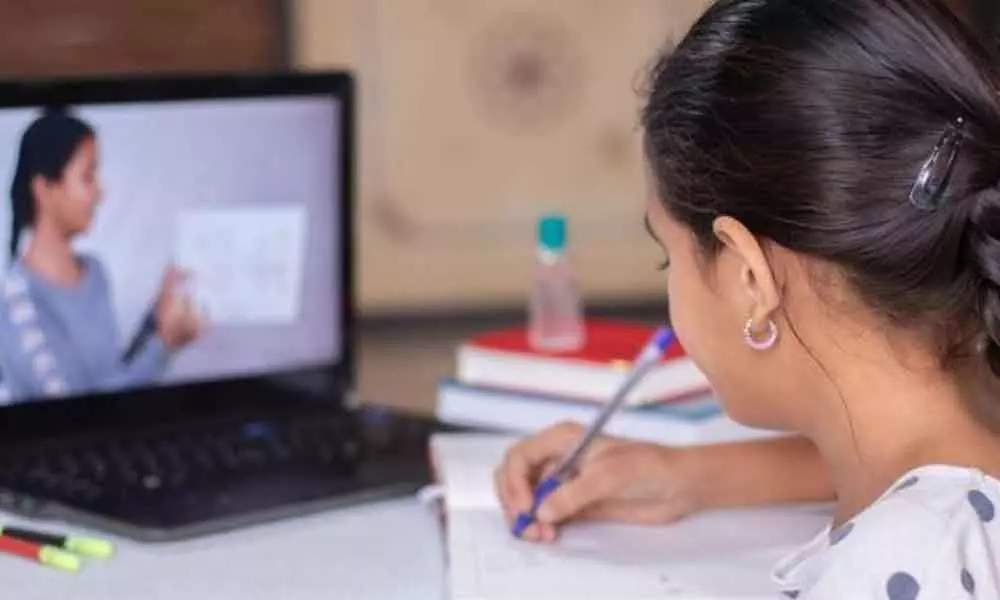27% students do not have access to smartphones, laptops: NCERT

27% students do not have access to smartphones, laptops: NCERT
Atleast 27 per cent students do not have access to smartphones or laptops to attend online classes, while 28 per cent students and parents believe intermittent or lack of electricity is one of the major concerns hindering teaching-learning, according to a survey by the NCERT.
New Delhi: Atleast 27 per cent students do not have access to smartphones or laptops to attend online classes, while 28 per cent students and parents believe intermittent or lack of electricity is one of the major concerns hindering teaching-learning, according to a survey by the NCERT.
The survey with over 34,000 partcipants, including students, parents, teachers and school principals from Kendriya Vidyalayas, Navodyaya Vidyalas and CBSE affiliated schools, has pointed out that lack of knowledge of using devices for effective educational purposes and teachers not being well-versed with online teaching methodologies, caused hindrance in the learning process.
The survey noted that almost all of the responsive states use physical (non-digital) mechanisms to track the progress of learners with majority of them either practising home visit by teachers or systematic parental guidance via phone calls.
"About half of the students stated that they did not have the school textbooks. Although the e-text books are available on NCERT website and DIKSHA, the probable reasons behind this feedback are that students are used to studying from the hardcopy of the textbooks, there is lack of awareness regarding the availability of the e-textbook and paucity of devices with students and teachers," it said.
The majority of the stakeholders pointed out that mathematics as a subject was difficult to learn via online medium.
"Since, mathematics contains a number of concepts which require interaction, continuous support, monitoring from the teacher and these aspects were lacking in the online mode of teaching.
"Next to Mathematics, Science was identified as the subject of concern since it contains several concepts and practical experiments which could only be done in the laboratory under the supervision of the teacher. A few stakeholders also found Social Science as a difficult subject to grasp through online classes," the survey said.
It said that around 17 pc of students identified languages as being a difficult subject to learn through online medium.
"Many students and parents felt the need for Physical Education classes through online mode, as physical fitness is the need of the hour to combat this pandemic. Arts education can help to reduce stress and boredom. Around 10 per cent of the stakeholders mentioned art education as a subject of concern," the survey said.
Universities and schools across the country have been closed since March 16, when the Centre announced a countrywide classroom shutdown as part of measures to contain the COVID-19 pandemic.
A nationwide lockdown was imposed on March 25. While several restrictions have been eased, schools and colleges continue to be closed.
The prolonged closure of educational institutions has mandated a shift from classroom teaching to online learning.
Based on the NCERT survey findings, the Ministry of Education has formulated Students' Learning Enhancement Guidelines.








